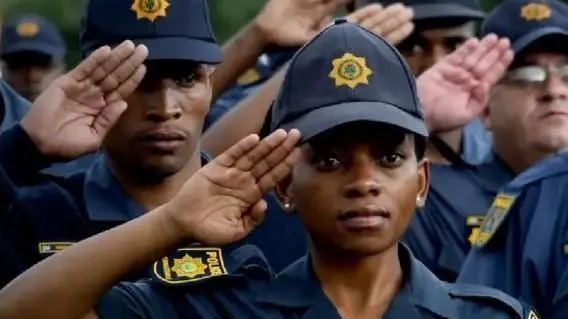Over a million youths chase just 5,500 police jobs — a third are graduates

Of the more than one million applications for SAPS training posts, nearly 600,000 were submitted by young women.
Image: File picture
MORE than one million young South Africans have applied for only 5,500 police trainee posts, laying bare the staggering desperation gripping the country’s jobless youth.
National police spokesperson Brigadier Athlenda Mathe has confirmed that the South African Police Service (SAPS) received 1,049,998 applications for its 2025/26 Basic Police Development Learning Programme (BPDLP) — a tidal wave of interest in a profession many once saw as a calling but now also represents one of the few glimmers of stable employment.
Even more sobering is that over 334,000 applicants are graduates who have completed post-school tertiary education, holding NQF Level 6 or higher qualifications — individuals who have already invested years in diplomas, advanced certificates, or degrees, now competing for entry-level positions in the public service. With South Africa’s youth unemployment rate — a staggering 46.1% in the first quarter of 2025 — among the highest in the world, the overwhelming response to the SAPS recruitment drive paints a bleak picture of the economic landscape young people are forced to navigate.
Women made up the majority of applicants, with 595,049 submissions, compared to 454,949 from men. The highest number of applications came from Gauteng (267,031), followed by KwaZulu-Natal (205,802) and Limpopo (115,877). The sparsely populated Northern Cape recorded the fewest applications, with 26,186 hopefuls throwing their hats in the ring.
The SAPS has since closed applications via its online portal and announced that only those who meet the entry criteria will be contacted within the next three months. The rest — the vast, silent majority — will receive no further communication, a digital full stop to their efforts.
This overwhelming response does more than highlight public interest in police work; it reveals a generation's battle to break free from the grip of systemic unemployment. For every job opportunity, there are hundreds — if not thousands — of qualified candidates waiting in line, degrees in hand, dreams on pause.
As the selection process begins, the story of these million applications will linger far beyond the police training colleges — echoing across dinner tables, graduation ceremonies, and job queues across the nation.
Related Topics: